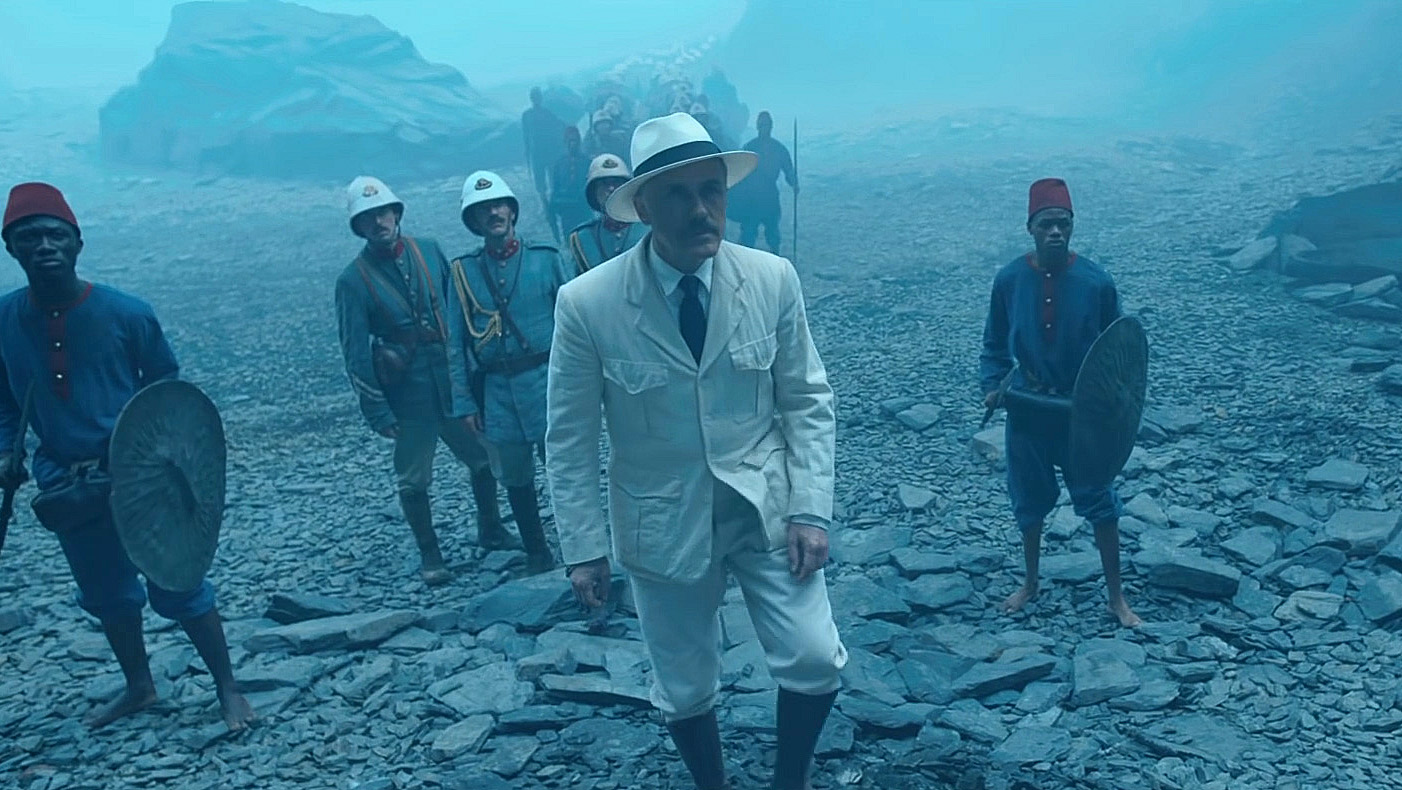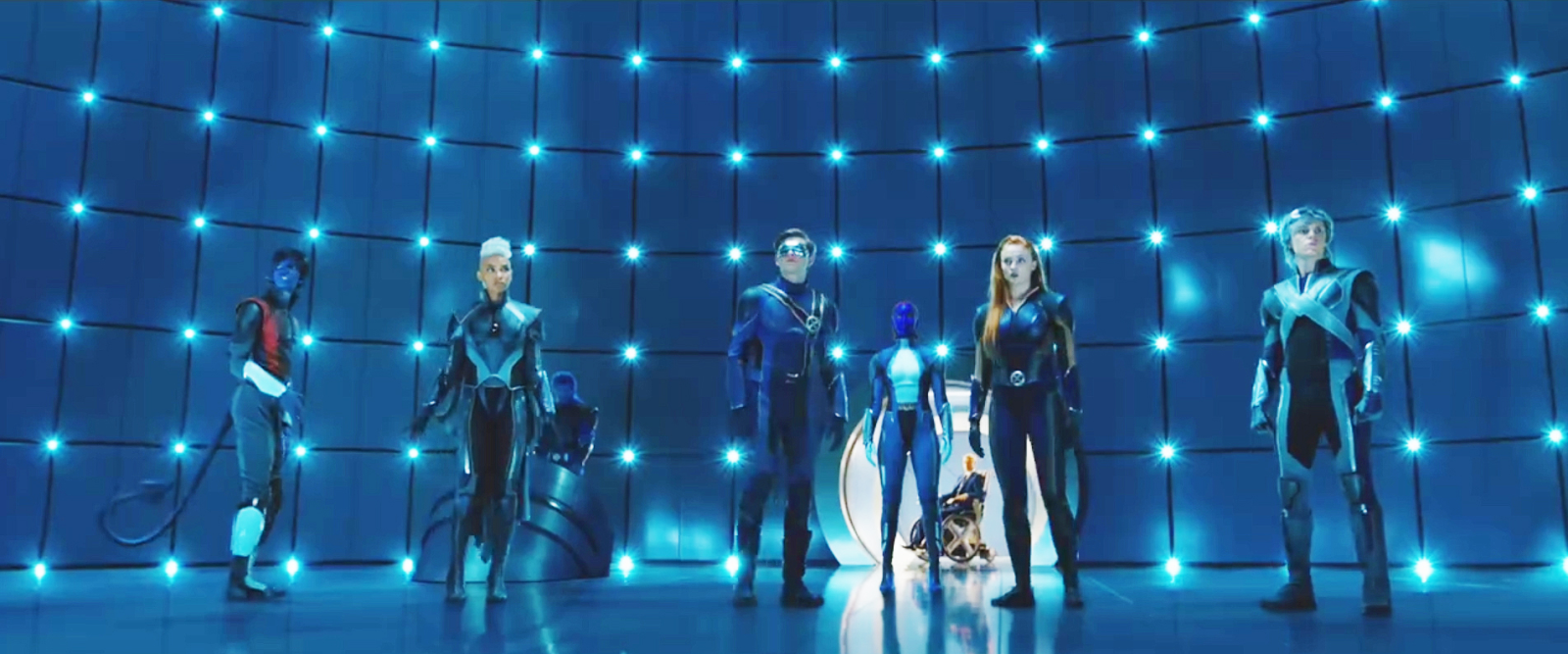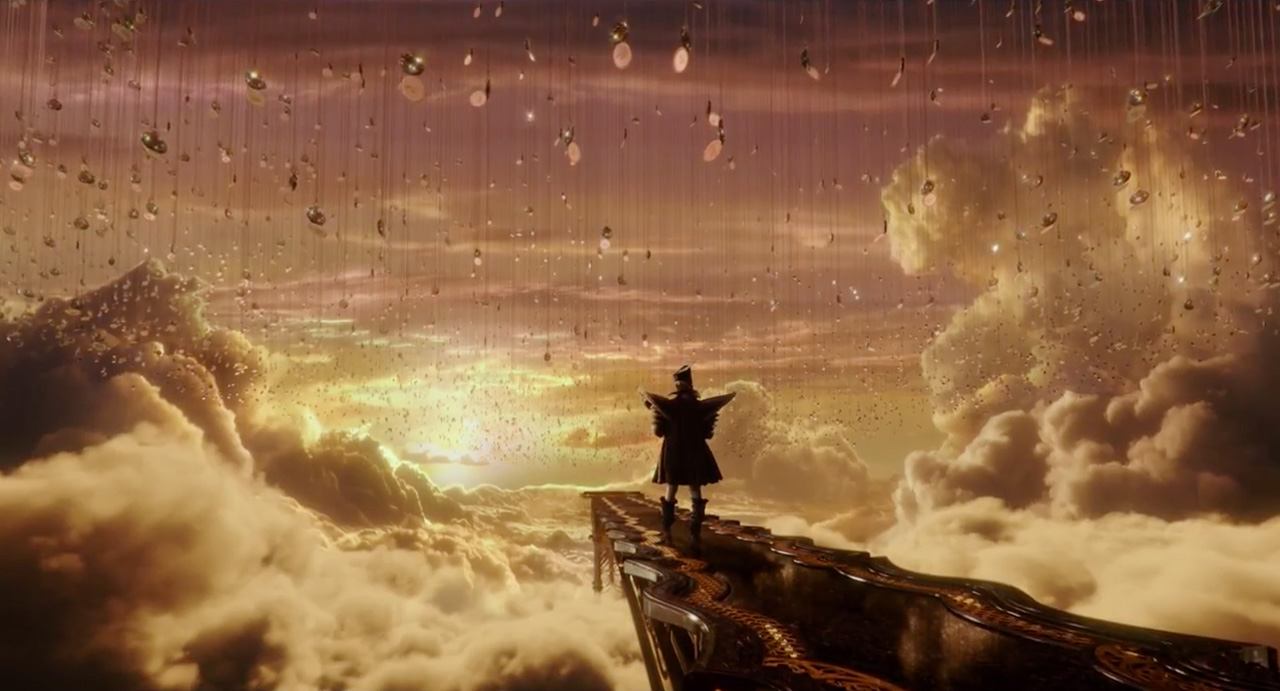We make a case for five films that, we feel, got unfairly savaged by both Rotten Tomatoes and the box office this past summer.

2016 is officially over and the general consensus is that its demise couldn’t have come sooner. Save for a few crowdpleasers the prevailing feeling is that a summer of duds added to the downbeat year. But was it really all that bad? Were we maybe rooting for the downfall of some remarkably overdue sequels? It’s time to play devil’s advocate and deliver an alternate take on a summer that had a lot more going for it than you may have first thought.
Independence Day: Resurgence

Styles of filmmaking, rightly, come and go. The popular tropes of mainstream cinema today will be the satirical fodder of tomorrow, but that doesn’t mean that old styles are devoid of merit. Roland Emmerich, historically a man who’s been pejoratively lumped together with his brother-in-explosive-arms Michael Bay, gave the world a particular style. Or, rather, a particular mood of filmmaking and it’s one that many people look back on with fondness, not least for its incredible campness. Emmerich, one of the few openly gay blockbuster directors in Hollywood, was not only a master of this campness but a pioneer of it too. They say imitation is the sincerest form of flattery and Emmerich’s style is one of the most lovingly parodied in cinematic history.
Independence Day: Resurgence is an odd duck no matter how you look at it, a sequel that comes at least a decade too late and without its biggest star in tow. But with the correct mindset it is one of the most entertaining experiences of 2016 by a considerable margin. It treads a line of self-reflexivity that Hollywood films rarely ever manage to balance themselves on. Jeff Goldblum’s flawless impersonation of himself serves as a prime example of this. It is a film that revels in its own hysterical silliness. It is an exuberantly gay Broadway musical with meticulously detailed CG alien battles in lieu of dance numbers. Telling people to stop being so analytical and just enjoy a stupid movie is incredibly annoying, I know, but what I’m really asking is for you to refocus your analysis.
If we are to view most, to all, of Hollywood’s recent blockbusters as being tied to the election year fever of 2016, which you easily can do, its place in the collage of west coast American liberalism is an interesting one. Back when the original Independence Day came out in 1996, another election year in which a Clinton was running, American liberals were in the midst of a glorious victory lap. The incumbent Clinton was at the head of a booming economy and effectively guaranteed a sophomore term. Independence Day was a feel-good hit of patriotism and unity that was spearheaded by Jewish and African-American heroes. Typically whenever aliens attack earth (or America, more accurately) the natural comparison our minds make is to the only other historical reference point with such clear-cut sides and Godwin’s law takes effect. Simply put, we naturally assume the invaders are Nazis and whilst the film is first and foremost a comedy it is not bereft of political imagery.
At the beginning of the film Bill Pullman’s character, the courageous hero of the first film and now the ultimately vindicated conspiracy lunatic (another of Emmerich’s well-loved tropes), seems to be studying the Luftwaffe. Similarly, the demise of a female American president, a far rarer representation than you may think, at the hands of these cruel conquerors, seeking to destroy earth by thoughtlessly drilling a natural resource, evokes images of the new, resurgent and climate change denying, Right. To see a coalition of Black, Chinese, gay and otherwise dorky stereotypes taking on this threat was a welcome blast from the past. Moreover though it is a film so ostentatious that even its numerous failures are entertaining. Watching Liam Hemsworth desperately try to impersonate his older brother Chris, and fail miserably, is the most endearing kind of misfire. It’s a film that warmly invites you to laugh both with, and at, it.
The Legend of Tarzan

As an action movie, a romance, an adventure or a reboot The Legend of Tarzan is fairly middling but what it does have going for it is that from its opening few seconds to its last it shows its story through a lens of postcolonialism. It doesn’t just mention imperialism, give you a nice soapbox speech for 2 minutes out of nowhere with a tear in its eye before disappearing again, it weaves it into its story and, rightly, into the very fabric of its world. It’s a film that’s able to be realistically mindful of an ugly history without being downbeat about humanity’s hopes of cultural unity.
Colonialism is more often than not just something that’s happening in the background of Hollywood’s representation of the past. It’s an incidental annoyance that occasionally intrudes into the magical wonder of native life as opposed to something that fundamentally altered the genetic makeup of entire civilisations. The Legend of Tarzan is not only conscious of race, culture and empires but also of slavery, class structure, economic exploitation and genocide. Which, for something that’s effectively a kids movie, deserves some recognition. Another thing that deserves some applause is its cast, particularly its villain.
Christoph Waltz exploded onto the international film scene back in 2009, seemingly out of nowhere, and Hollywood had pretty much no idea what to do with him. But Legend of Tarzan is a solid testament to what Waltz can do in a big Hollywood picture when he’s given an actual character to play. Alexander Skarsgård lends a lot more emotion than what would typically be demanded from a piece of eye candy as does the woman of the moment, Margot Robbie. Not to mention the inclusion of the infinitely watchable Samuel L. Jackson, an actor who has always chosen roles that are conscious of the representation of race on screen. It’s a film filled with a historical consciousness that should be emphatically encouraged.
Warcraft

Though a huge success in the highly coveted Chinese market, Warcraft was a fairly astounding flop in the US considering the enormous fanbase of its source material. But it is, at the very least, a colourful failure and a film about cultural conflict that’s not without relevant insight into misunderstanding and emotional tragedy. After the success of his first two features, audiences had been dying to see what director Duncan Jones could accomplish with a higher budget and greater studio support. Many felt that what they got was too generic to feel deserving of Jones’ clear talents but underneath a remarkably superficial gloss I’d happily argue that Jones infused a lifeless mess of CGI with his most valuable skill.
Warcraft is a film that spends most of its under two hour running time on developing its environments and characters rather than its plot and the actual structure of its fictional world. Every single moment of the film is packed with vital information pertaining to the culture and heritage of its characters as well as their deeply complex relationships with one another. It really is like watching someone try to condense a full season of a TV show into two episodes. You’d be forgiven for expecting an easy going romp but there are no throwaway lines in Warcraft, blink and you can miss something crucial. This puts a huge amount of strain on the actors to give quite nuanced performances and it’s here that Jones’ involvement begins to make sense.
Jones’ first two features made waves because they injected real human emotion into high concept science fiction stories. Both Moon and Source Code were comparatively small-scale productions that utilised CG effects to make their worlds feel bigger but were predominantly shot in very small, very controllable, sets. Warcraft’s recreation of an open fantasy world seems to be in direct contrast to this, and Jones is undeniably a little out of his element, but it’s his trademark, genuine, emotions that save it. Particularly thanks to some quietly brilliant performances from two actors who are consistently the best things in bloated Hollywood messes, Toby Kebbell and Ben Foster. There’s a mountain of tiny details to be discovered on repeat viewing so consider giving it another shot if you were, understandably, flummoxed on your first viewing.
X-Men: Apocalypse

By most people’s standards this is a messy film. X-Men: Apocalypse set itself the task of introducing plot threads for five new iterations of well-known characters whilst resolving plot threads for five others and continuing plot threads for four recurring characters, tieing it all around a colossal, central, villain. The truth is it was never going to work. But it’s a joy to watch a talented director try. Bryan Singer, another of Hollywood’s few openly gay big-budget directors, has said that he’ll be stepping away from the franchise once again after the mixed reaction to Apocalypse, but in the age of resurgent authoritarianism the world needs his version of the X-Men more than ever.
It’s hard to remember now, but we actually have Bryan Singer to thank, or curse, for all of this. His first X-Men film heralded the beginning of the new age of superhero films, and the boom of Marvel comics. His second X-Men film is still considered by many to be the best of all time. Singer reshaped the X-Men into a funnier and slicker team of superheroes than audiences were used to but he also gave them something that few superheroes ever get: social and political purpose. The X-Men are typically considered as being representative of marginalised people in general but Singer’s version tapped into the themes that echoed the experiences of the LGBT community in the US. It’s less prevalent here than in other instalments but Apocalypse does possess one huge thing that the other two ensemble superhero of 2016 films don’t.
While Batman V Superman and Civil War both centred around the theme of division Apocalypse tapped into a much richer vein of political subtext, that of demagoguery. Oscar Isaac’s eponymous villain offers greatness to the disenfranchised with the promise of a new world built from the ruins of broken systems and established orders. The gaudiness of the characters’ design put off a lot of viewers (and Isaac deserves a lot of praise for managing to deliver a decent performance in a ridiculous suit fitted with the outmoded cowl that’s restricted the movement of so many actors) but I’d posit that it adds to the metaphor by displaying the bright showmanship that has ensnared so many people into supporting fanatical movements.
Many felt that his talents were wasted but truthfully Isaac is one of the few actors working today that could deliver a performance strong enough to escape the layers of makeup covering him and he’s at his best when he’s doing virtually nothing. Only Oscar Isaac could deliver a line as innocuous as “I want to set you free” and make it sound like one of the most frightening lines of the year. A line assisted by Apocalypse’s most unusual of showpieces, its sound. It’s typically the most neglected aspect of a large production, particularly superhero movies (the Avengers films consistently contain some truly shocking examples of botched ADR). But the sound editing, mixing and design in Apocalypse is noticeably terrific, not to mention John Ottman’s joyfully grand and playful score.
Like so many of the more hit-and-miss superhero franchise films, you get the feeling that X-Men: Apocalypse rested on its laurels a little too much. But as a whole, aside from an almost unprofessional level of disinterest from Jennifer Lawrence, the magnificent ensemble never lets the film down. James McAvoy and Michael Fassbender are still able to extract emotion from the most ridiculous scenes, as well as that palpable undercurrent of sexual tension, while the new additions sell you on a different direction for the cast. Ty Sheridan’s Risky Business Tom Cruise impression, complete with Ray Bans, bounces off of Sophie Turner’s Molly Ringwald suburban it-girl perfectly. Fox’s desire to re-sign their original cast may be a little unrealistic but the franchise would be in solid hands with their new hires.
Alice Through the Looking Glass

Tim Burton’s Alice In Wonderland is one of those films famous for its disproportionately high box office haul compared to its low public adoration. It was one of the films that benefitted hugely from the explosion in demand for 3D priced tickets thanks to James Cameron’s Avatar. James Bobin’s very belated sequel was met with far less enthusiasm from public and critics alike and its lack of a real fanbase showed in its box office failings, no doubt assisted by the emphatic death of the love affair shared between the filmgoing public and its star Johnny Depp.
But there’s a solid case to be made that states that Bobin’s sequel is the superior film. Both of Linda Woolverton’s scripts attempt to, wrongly, infuse a sense of logic and reason into an absurdist story but her famously prominent feminist themes find a more comfortable home under Bobin’s direction. The titular Alice is able to strike out more confidently as a symbol of independence and self-determination, building a much more solid central relationship between Alice and her mother. Not to mention that his experience with comedic powerhouses The Muppets and Flight of the Conchords added some much needed slapstick to the franchise.
Bobin makes far better use of the comedy talents of the ensemble, particularly those of Helena Bonham Carter and (the only actor who appeared to be having fun in the first film) Anne Hathaway. It’s the natural clownishness of Sacha Baron Cohen that’s the films greatest selling point though. He’s largely known for his more adult work these days and after the remarkably blue shock value of his last film, Grimsby, it’s a real treat to see him get a slew of well-earned laughs from a family friendly performance; not to mention his ability to inject some honest sentiment into an eclectic Disney adventure.
All of these films are available to buy now on Blu ray and DVD.


